Re-elected President Erdogan renovates the Turkish government
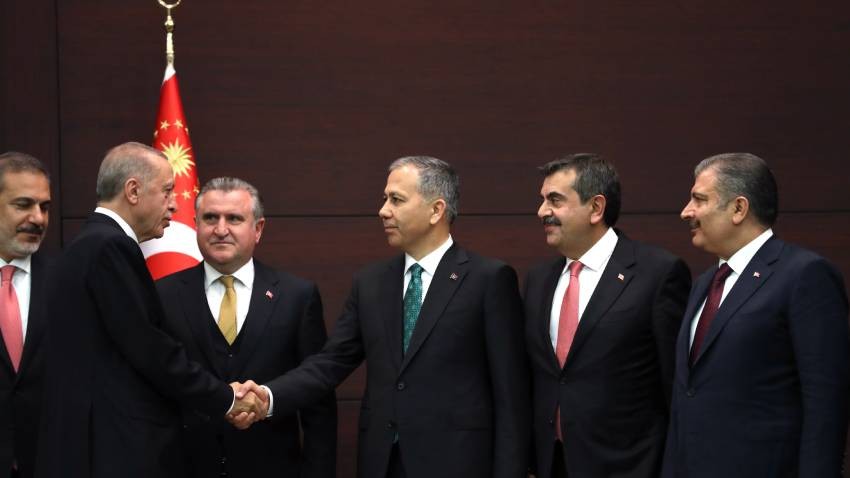
Turkish President Recep Erdogan presented his government as the "cabinet of the new century". Only Health Minister Fahrettin Koca and Culture and Tourism Minister Mehmet Nuri Ersoy kept their positions in the government. Intelligence chief Hakan Fidan has become Foreign Minister. Former presidential spokesman Ibrahim Kalin has become the new chief of the National Intelligence Agency. Mehmet Simsek returns to the position of finance minister. The new interior minister is Ali Yerlikaya, who previously served as the Governor of Istanbul. Former Chief of the General Staff of the Turkish Armed Forces Gen. Yaşar Güler becomes Minister of Defence. Mahinur Göktaş took office as Türkiye's new Minister of Family and Social Services. Hafize Erkan, a senior finance executive in the United States, now heads the Turkish Central Bank, the Anadolu Agency reports.
Sofia has asked Greece to patrol Bulgarian skies
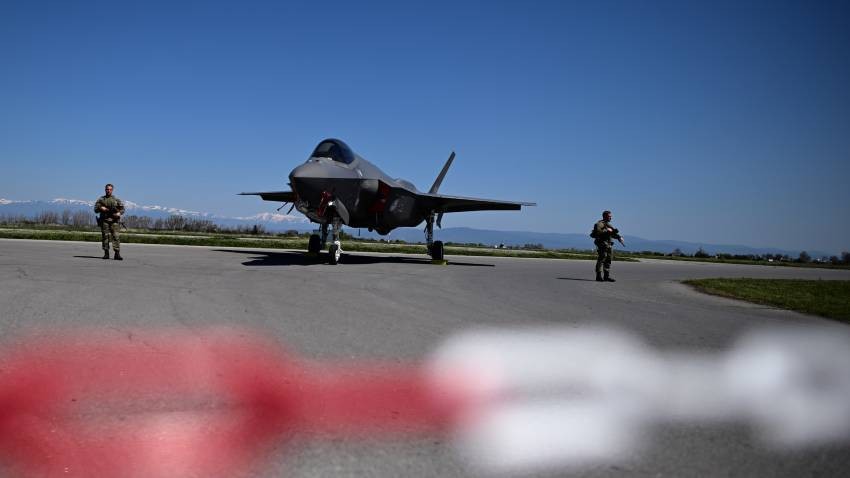
Bulgaria has asked Greece for planes to protect its airspace under the "NATO Air Policing" program, Kathimerini newspaper writes. The Greek Air Force, together with the Italian Air Force, already carries out similar missions over Albania, Montenegro and North Macedonia. The Bulgarian Ministry of Defense specified that patrolling is possible with the adopted decisions to guarantee security on NATO's eastern flank for an additional period. The Bulgarian Air Force will continue to fulfill its national commitments to be on duty in the NATO Integrated Air Defence System (NATINADS) and to protect the national and allied airspace. If necessary, tasks will be performed by Greek jets from Greek airports, the ministry added.
Early parliamentary election in Serbia expected by the end of the year
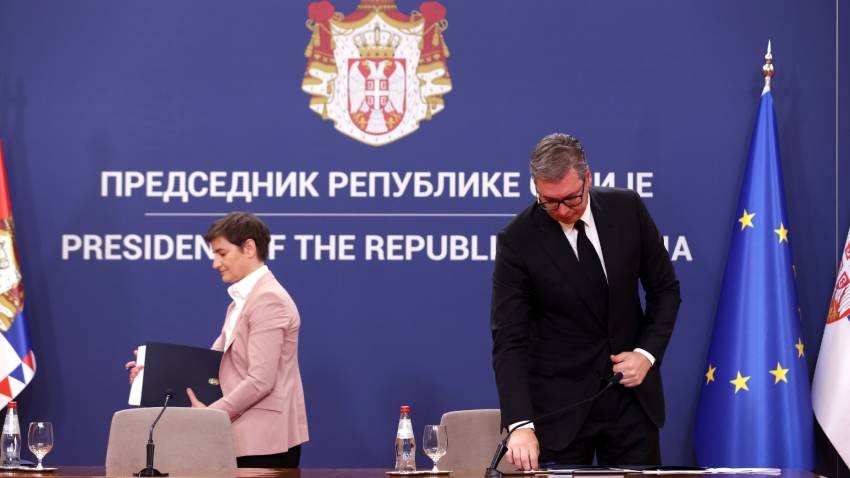
Serbian President Aleksandar Vucic and Prime Minister Ana Brnabic said there would be early elections in the country. Brnabic declared that her resignation was on the table and that the only way out of the crisis after the mass shootings in early May was going to elections, as the opposition, which holds mass protests in Belgrade every week, does not want to negotiate with the authorities. Vucic said that the street would not choose who would rule and that there would be no transitional government. He announced upcoming measures to improve the lives of citizens: a rise in salaries in the sphere of education and healthcare by 5% from September, and by another 10% from December; pensions will be increased by 5.5% from October, and from January by nearly 15%. "I will not hand over power without elections," Vucic was quoted as saying by the Večernje Novosti newspaper.
Tensions in Kosovo continue
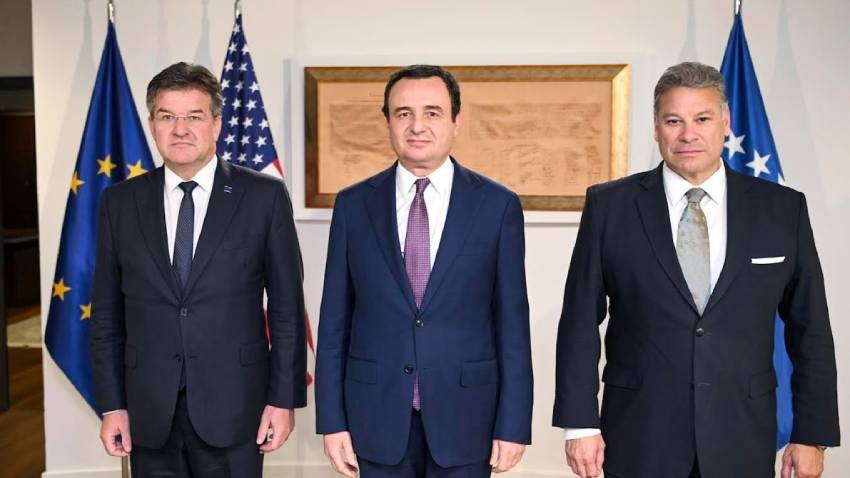
"I have not received an international ultimatum about the situation in the north," Kosovo Prime Minister Albin Kurti said, adding that things there cannot be resolved with pressure or threats, the Kossev portal reports. The statement comes after Kurti met with the European Union envoy for dialogue between Kosovo and Serbia, Miroslav Lajcak, and the U.S. envoy for the Western Balkans, Gabriel Escobar. After the meeting, the Albanian Post portal wrote that sanctions were being prepared against Kurti and Kosovo, due to the escalation and clashes after the attempt to install the formally elected Albanian mayors of the 4 municipalities predominantly inhabited by Serbs. Belgrade asked the US and the EU to hold new elections in Serbian-dominated municipalities. Without being authorized by anyone, Albanian Prime Minister Edi Rama surprisingly announced that he had submitted to the US and the EU a draft status of the Union of Serbian Municipalities in Kosovo.
VMRO-DPMNE is against constitutional amendments in North Macedonia
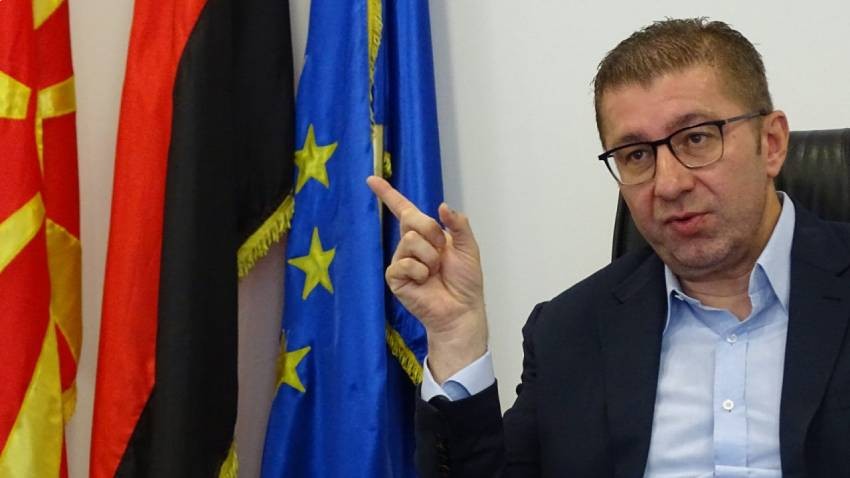
Frequent elections in Bulgaria are a negative factor for bilateral relations and the European perspective of North Macedonia, Foreign Minister Bujar Osmani told Telma TV. For 2.5 years, he has worked with 6 Bulgarian ministers, which did not allow him to build "relationships of personal and institutional trust", Osmani said. The meeting between the Prime Minister and leader of SDSM, Dimitar Kovacevski, with the leader of the main opposition force VMRO-DPMNE, Hristijan Mickoski, did not achieve a result. They did not agree to vote on changes to the constitution that would allow Bulgarians to be registered as an ethnic minority. The registration is a condition for starting accession negotiations between the EU and Skopje. VMRO-DPMNE is against the changes, which are feasible only with the support of the opposition.
Compiled by: Ivo Ivanov
English: Al. Markov
Photos:EPA/BGNES, kossev.info, balkaninsight.com
Robert Joseph Miller, Bulgaria’s Honorary Consul in Nevada, was awarded the prestigious “Golden Laurel Branch” of the Ministry of Foreign Affairs for his exceptional merits in maintaining the diplomatic relations between the US and Bulgaria. The award..
The cool autumn evenings give us a reason to immerse ourselves in the cosy atmosphere of restaurants in Sofia and try new flavours inspired by global culinary trends. Leading Italian travel platform praises Sofia in autumn..
At 04:00 Bulgarian time on October 26, 2025, we must turn our clocks back one hour. This means one more hour of sleep, but it does not eliminate the stress for the body as a result of the change in the biological schedule,..
Minister of the Environment and Water Manol Genov has granted two centuries-old trees – each of which approximately 200 years old – protected status,..

+359 2 9336 661
